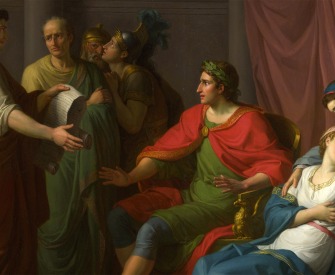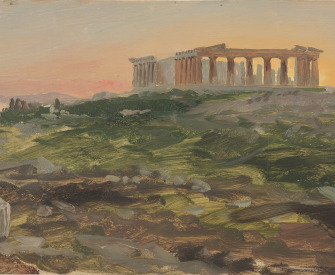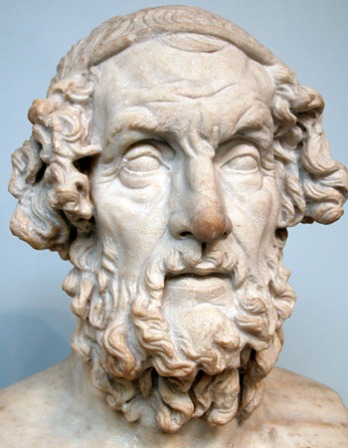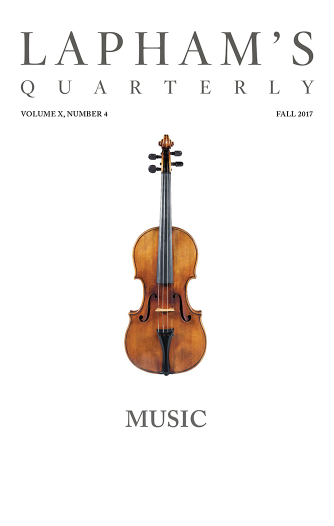There is no happiness like that of a young couple in a little house they have built themselves in a place of beauty and solitude.
—Annie Proulx, 2008Goods and Services
Socrates asks what the happy need.
And now, son of Axiochus, let me put a question to you: Do not all men desire happiness? And yet perhaps this is one of those ridiculous questions I am afraid to ask, and which should not be asked by a sensible man. For what human being is there who does not desire happiness?
There is no one, said Cleinias, who does not.
Well then, I said, since all of us desire happiness, how can we be happy? That is the next question. Will we not be happy if we have many good things? And this is perhaps even a more simple question than the first, for there can be no doubt of the answer.
He agreed.
And what things do we esteem good? No solemn sage is required to tell us this, which may be easily answered. For everyone will say that wealth is a good.
Certainly, he said.
And are not health and beauty goods, and other personal gifts?
He agreed.
Now, can there be any doubt that good birth and power and honors in one’s own land are goods?
He agreed.
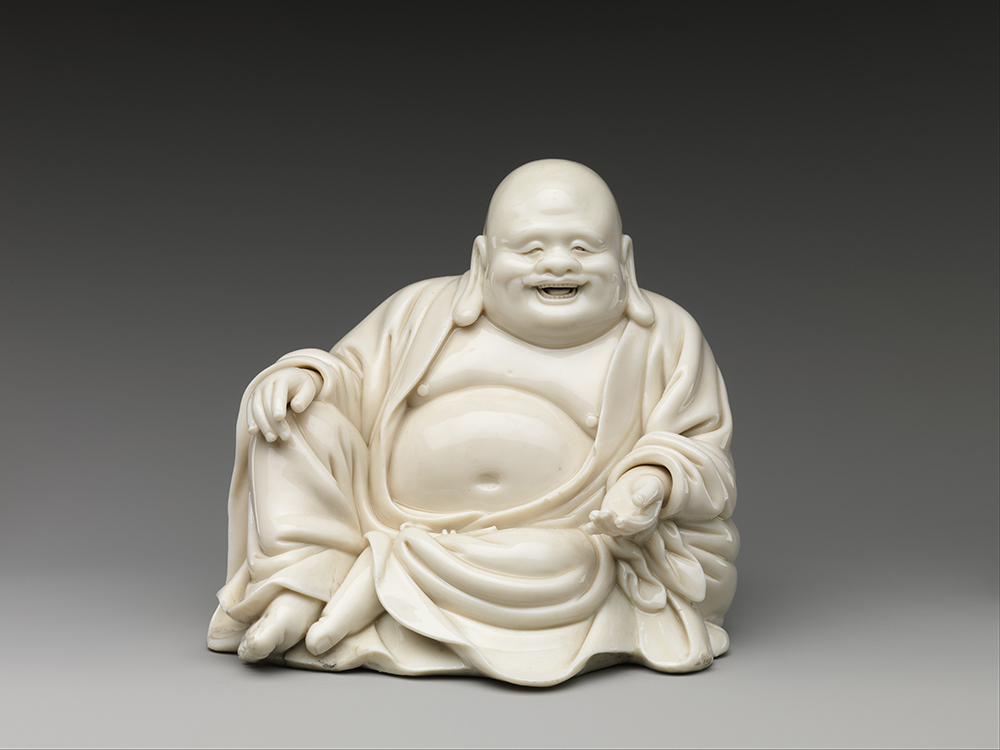
Buddhist monk Budai, seventeenth or eighteenth century. The Metropolitan Museum of Art, The Friedsam Collection, Bequest of Michael Friedsam, 1931.
And what other goods are there? I asked. What do you say of justice, temperance, courage? Do you not truly and indeed think, Cleinias, that we will be more right in ranking them as goods than in not ranking them as goods? For a dispute might possibly arise about this. What then do you say?
They are goods, said Cleinias.
Very well, I said, and in what company will we find a place for wisdom—among the goods or not?
Among the goods.
And now, I said, think whether we have left out any considerable goods.
I do not think that we have, said Cleinias.
Upon recollection, I said, indeed I am afraid we have left out the greatest of them all.
What is that? he asked.
Fortune, Cleinias, I replied, which all, even the most foolish, admit to be the greatest of goods.
True, he said.
You think, I said, that to act with a wise man is more fortunate than to act with an ignorant one?
He agreed.
Then wisdom always makes men fortunate. For by wisdom no man would ever err, and therefore he must act rightly and succeed, or his wisdom would be wisdom no longer.
At last we somehow contrived to agree in a general conclusion that he who had wisdom had no longer need of fortune. I then recalled to his mind the previous state of the question. You remember, I said, our making the admission that we should be happy and fortunate if many good things were present with us?
He agreed.
And should we be happy by reason of the presence of good things if they profited us not or if they profited us?
If they profited us, he said.
And would they profit us if we only had them and did not use them? For example, if we had a great deal of food and did not eat, or a great deal of drink and did not drink, should we be profited?
Certainly not, he said.
Or would an artisan who had all the implements necessary for his work and did not use them be any the better for the possession of all that he should possess? For example, would a carpenter be any better for having all his tools and plenty of wood if he never worked?
Certainly not, he said.
And if a person had wealth and all the goods of which we were just now speaking and did not use them, would he be happy because he possessed them?
No indeed, Socrates.
Then, I said, a man who would be happy must not only have the good things, but he must also use them. There is no advantage in merely having them?
True.
But if you have the use and possession of good things, is that enough to confer happiness?
Yes, in my opinion.
And may a person use them either rightly or wrongly?
He must use them rightly.
That is quite true, I said. And the wrong use of a thing is far worse than the nonuse. For the one is an evil, and the other is neither a good nor an evil. You admit that?
He agreed.

Love, and You Will Be Happy, by Paul Gauguin, 1899. The Art Institute of Chicago, Gift of the Print and Drawing Club and Carter H. Harrison.
Now in the working and use of wood, is not that which gives the right use simply the knowledge of the carpenter?
Nothing else, he said.
And surely in the manufacture of vessels, knowledge is that which gives the right way of making them?
He agreed.
And in the use of the goods of which we spoke at first—wealth and health and beauty—is not knowledge that which directs us to the right use of them and guides our practice about them?
Knowledge, he replied.
Then in every possession and every use of a thing, knowledge is that which gives a man not only good fortune but success?
He agreed.
And tell me, I said, what do possessions profit a man if he has neither sense nor wisdom? Would a man be better off having and doing many things without wisdom or a few things with wisdom? Look at the matter thus: If he did fewer things, would he not make fewer mistakes? If he made fewer mistakes, would he not have fewer misfortunes? And if he had fewer misfortunes, would he not be less miserable?
Certainly, he said.
Then, I said, Cleinias, the sum of the matter appears to be that the goods of which we spoke before are not to be regarded as goods in themselves, but the degree of good and evil in them depends on whether they are or are not under the guidance of knowledge. Under the guidance of ignorance, they are greater evils than their opposites, inasmuch as they are more able to minister to the evil principle that rules them. And when under the guidance of wisdom and virtue, they are greater goods. But in themselves they are nothing?
That, he said, appears to be certain.
What then, I said, is the result of all this? Is this not the result, that other things are indifferent, and that wisdom is the only good, and ignorance the only evil?
He agreed.
Let us consider this further point, I said. Seeing that all men desire happiness, and happiness, as has been shown, is gained by a use, and a right use, of the things of life, and the right use of them, and good fortune in the use of them, is given by knowledge, the inference is that every man should by all means to try and make himself as wise as he can?
Yes, he said.
A multitude of small delights constitute happiness.
—Charles Baudelaire, 1897And the desire to obtain this treasure, which is far more precious than money, from a father or a guardian or a friend or a suitor, whether citizen or stranger—the eager desire and prayer to them that they would impart wisdom to you is not at all dishonorable, Cleinias. Nor is anyone to be blamed for doing any honorable service or ministration to any man, whether a lover or not, if his aim is wisdom. Do you agree to that, I said.
Yes, he said, I quite agree and think that you are right.
Yes, I said, Cleinias, if only wisdom can be taught, and does not come to man spontaneously. For that is a point which has still to be considered, and is not yet agreed upon by you and me.
But I think, Socrates, that wisdom can be taught, he said.
Best of men, I said, I am delighted to hear you say that. I am also grateful to you for having saved me from a long and tiresome speculation as to whether wisdom can be taught or not. But now, as you think that wisdom can be taught, and that wisdom only can make a man happy and fortunate, will you not acknowledge that all of us should love wisdom, and that you in particular should be of this mind and try to love her?
Certainly, Socrates, he said, and I will do my best.

Plato
From the Euthydemus. Born into a distinguished family—his lineage claimed both Poseidon and the lawgiver Solon as ancestors—Plato founded the Academy in Athens. Aristotle described him as a man “whom it would be blasphemy for bad people even to praise.” The Euthydemus, in which Socrates is shown to expose the fallacies of sophists, was for so long avoided by scholars that the classicist Thomas H. Chance once wrote, “It is unbecoming to indulge…in the easy sport of demonstrating that the Euthydemus has been ignored.”
